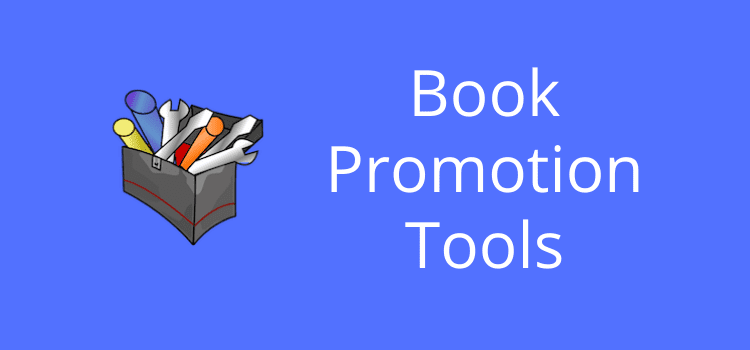
We live in a world of streams of data. You would think it should be easy to access book sales data to find out where your book sales come from.
But the truth is that it is next to impossible.
No, I’ll rephrase that. It is impossible to access book sales data apart from raw sales numbers.
Online ebook and book retailers such as Amazon, Apple, Barnes & Noble, Kobo, and Smashwords give absolutely no buyer data whatsoever to self-publishers.
Basic book sales data
Amazon does give basic geographic data, in the form of which geo-located Amazon store sold your book.
It also supplies data for ebook sales, printed book sales, and, of course, Kindle Unlimited page reads.
But it is not that helpful. I buy my books from the US store, even though I live in Europe. So, where do my sales figures count?
The other retailers, however, give you zip, zero, nil, and nothing apart from total sales.
How can you possibly know where your books are popular or which demographic is more likely to buy your book?
Or if you have returning buyers?
The disappointing answer is that you can’t if you rely on online retailers.
Is this type of online sales data and information recorded by retailers? Of course, it is.
But they would, of course, argue that there are privacy issues to be considered, which is really an excuse.
Basic geographic, demographic, and returning buyer data would breach no privacy laws at all as long as it contains no personal data.
You can get some data about your readers
For self-published authors who have a blog or website, you can get some hints about your readers by using Google Analytics.
Now, let me be clear. This method will only give you hints, not definitive data. But when there is nothing, anything helps.
It will not give you sales data, but it will provide you with a clue as to where your blog or website traffic is coming from geographically.
It can also tell you about predominant age and gender demographics visiting your site. The data gives you a hint as to where your book sales may be coming from.
It also gives visitor language, interests, affinity, new and returning visitors, the frequency of visits as well as user flow on your site.
It is a fantastic tool to use to see how many visitors navigate to your book promotion pages.
To give you an example of how this data is useful, I noticed a little spike in my book sales.
As I am not JK Rowling or an Amazon bestseller, these small spikes in my book sales are what puts beer in my glass.
So I am always very interested in knowing where they come from.
If I can discover the reason or the location of the spike, I have a chance of building upon it.
A surprise discovery
By using Google Analytics, I was able to discover that I had a jump in traffic for a couple of days, from of all places, Russia.
Okay, don’t suddenly brand me as Marxist. But what caused this jump in my blog traffic was a comment I had made on an article on RT.
While there was a jump in my blog traffic originating in Russia, there was an almost equal jump from Norway, UK, and Germany.
Amazon doesn’t have a Kindle Store in Russia.
But my spike in sales, which corresponded to my jump in blog traffic, perhaps came from the UK, which my KDP sales report confirmed, but also possibly from Scandinavia and Germany. Why?
Because what is news in Russia affects these geographic locations.
I picked up a few sales on Smashwords at around the same time.
But with no geographic data available from Smashwords, it’s impossible to know if they were a result of my comment.
But I can assume they may have been.
Commenting can help book sales
Commenting on newspaper sites is a very useful method of attracting potential book buyers.
I know there is a lot of advice about commenting on book blogs. But this was a clear indicator that news sites may have much better potential.
Why spend the time posting an intelligent comment on a book blog that may get less than 100 readers, who are probably fellow authors, when the same investment in time could expose you to thousands of new potential readers?
Most news sites allow you to create a profile, which often allows you to add a clickable link to your website or blog, which has to be a plus.
The second is by tracking and analyzing your blog or website data. It can give you clues as to where to concentrate your efforts.
Mine are now clearly going to be registering and commenting on mainstream news sites to see if I can build more traffic and perhaps replicate my recent sales spike.
There is a third lesson from this too.
If you want to sell books, never stop looking for new opportunities to promote yourself and your books online and offline for that matter.
Some will work, and some won’t. The quote below is probably worth keeping in mind.
Half the money I spend on advertising is wasted; the trouble is I don’t know which half.
John Wanamaker
But analyze your data if and when you can. You may be able to discover what is working and what is not working in your book promotion efforts.
Summary
Unless you are published by one of the big publishing companies, getting detailed sales data will always be difficult.
All you can do is keep an eye on your sales ranking and raw unit sales or your monthly royalty statements if you receive one.
If you bought an ISBN, you might be able to access Nielsen Bookscan data.
Book publishing is now very easy for most authors.
Unfortunately, though, tracking your book sales data is not quite so simple.
Related Reading: How To Promote A Book On Linkedin With Your Company Page




Given the section about how useful comments can be, it would have been silly to click back without making one. :)
It’s an interesting thought about news sites comments and one I hadn’t thought about before. Thanks.